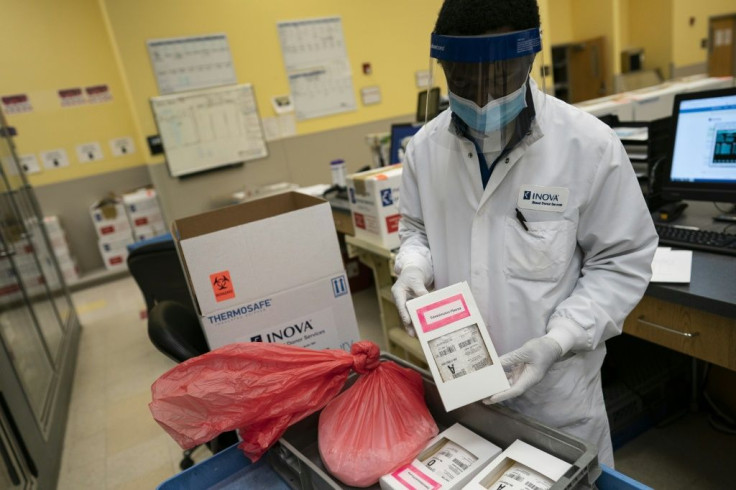Coronavirus Treatment: New York Tests Heartburn Drug Famotidine To Treat COVID-19

KEY POINTS
- The anti-ulcer drug famotidine is showing superior promise as a potential cure for COVID-19
- It's being tested as a COVID-19 cure by Northwell Health along with remdesivir and sarilumab
- Anecdotal evidence points to famotidine's effectiveness
Famotidine, which is better known to Americans as a cheap but generally safe treatment for peptic ulcers and GERD, is now being tested as a probable cure for COVID-19. It's sold in the United States under the brand name Pepcid.
Famotidine is among a number of drugs currently being tried as a cure for COVID-19 by Northwell Health, the nonprofit integrated healthcare network that's New York state's largest healthcare provider and private employer. Northwell Health began intravenous treatment of the first COVID-19 patients on April 7. These patients are being given famotidine at nine times the heartburn dose, Science reported.
Apart from famotidine, Northwell Health is also testing Gilead Science’s remdesivir and Regeneron’s sarilumab. Northwell Health made certain to keep the famotidine clinical trials under wraps to avoid a run on the drug, as what happened to hydroxychloroquine when president Donald Trump touted it wrongly as a COVID-19 cure.
“If we talked about this to the wrong people or too soon, the drug supply would be gone,” said Dr. Kevin Tracey, a former neurosurgeon in charge of Northwell Health’s research. The potential of famotidine as a COVID-19 cure was brought to the attention of the U.S. medical community and the federal government by Dr. Michael Callahan, an infectious disease specialist based at Massachusetts General Hospital in Boston.
Dr. Callahan said Chinese doctors in Wuhan, China's pandemic epicenter, inadvertently discovered that while one in five COVID-19 patients over the age of 80 was dying, many of those that survived took famotidine pills for heartburn.
The Chinese also discovered poor elderly patients had a higher survival rate compared to well-to-do patients. Surprisingly, they found this was due to poor patients using famotidine because it was cheaper than omeprazole (brand name Prilosec), the drug more often prescribed by doctors to wealthier Chinese.
Chinese doctors came to this conclusion after reviewing 6,212 COVID-19 patient records. They found hospitalized COVID-19 patients on famotidine appeared to be dying at a rate of some 14% compared with 27% for those not on the drug.
The results, while not vetted by any clinical study, was enough for Dr. Callahan to inform Dr. Robert Kadlec, assistant secretary for Preparedness and Response at the Department of Health and Human Services, about it. Dr. Callahan also informed Dr. Robert Malone, chief medical officer of Florida-based Alchem Laboratories, a contract manufacturing organization.
“If it does work, we’ll know in a few weeks,” said Dr. Tracey, who leads the famotidine study and is the president and CEO of the Feinstein Institute for Medical Research, to Science.
© Copyright IBTimes 2025. All rights reserved.





















